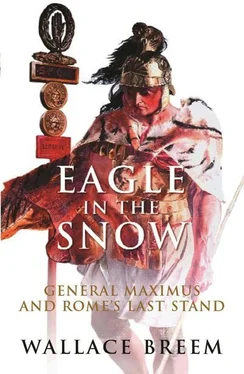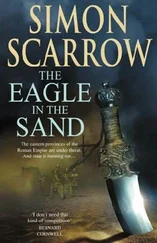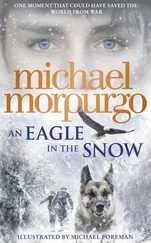“I’ll send Didius. He has a good head.”
I looked at the map again, and fingered the east bank route up which I had led the legion only two months previously. “Goar should have held that road.” To his bodyguard, I said, “Tell your prince that this is where I want his men, not up in the hills.”
A trumpet blew the alarm and an optio thrust his head round the tent flap. “They are moving up the slope again, sir.”
“In strength?”
He said, in a scared voice, “It looks as though the whole lot are coming.”
“Why can’t they be civilised,” grumbled Quintus. “All decent soldiers fight in daylight.”
I watched the men forming up in their battle ranks, and a signaller from the camp behind ran up, breathing hard. “They are moving on the auxiliary fort as well, sir.”
Night fighting was always their speciality and this was proved through the long hours that followed. They attacked Moguntiacum too, and all night long we could see the fireballs from the ballistae, arching outwards into the snow so that the camp below seemed to be a gigantic fire that spluttered furiously and would not be put out. When the fourth attack had failed, I mounted my horse and cantered along the road to the old camp from which Marius was just about to launch a counter-attack. Here, an attempt was being made to encircle the town; but the snow lay thick on the slopes, and there were many drifts, and it provided a natural barrier that we could not have improved upon. The majority of his garrison was now inside the town and only a handful of men were left to protect the camp and the aqueduct. After a quick consultation with Marius’ second-in-command, who told me that the tribune had the situation well in hand, I returned to my command. The fighting continued until well past dawn, and when daylight came the ditches were choked with the Vandal dead, so that I began to wish that I had dug them deeper. The men stood down; the wounded were taken to the rear, and the cooks prepared food over the spluttering fires. Fresh bundles of javelins were fetched from the waggons and the armourers were busy, sharpening swords and spears and repairing damaged armour. I went to my tent and lay down on a blanket, wrapped in my cloak.
An hour later they attacked again.
Late the next afternoon a messenger came from Goar. He had crawled across the ice, playing dead, from one pile of bodies to the next. He told me the Alans had suffered fearful losses but had temporarily checked the advance of the column on the east bank. They were grateful for the help I had sent them.
Quintus said wearily, “We are holding them, but that is all. They are too many for us. We cannot beat them without fresh troops.”
I said, “I agree. If they had let us rest last night I would have attacked at dawn, and I think we could have pushed them back across the ice. But our men can only fight for so long without rest; they can keep the pressure up by sending in fresh men all the time.”
He said, “Why not re-site the ballistae so as to enfilade them?”
I blew on my cold hands. “Yes, they don’t like being caught on the flanks; I noticed that. We’ll try it then and see if it works.”
That night I altered my dispositions, moved the main body of my men onto the flanks and left the centre only lightly held. I was determined to try a counter-attack if I could. They came against us for the hundredth time and died horribly between the stakes and the ditches. I waited till I judged that the great mass were pressing in upon the centre where the arrow-fire from the palisade was weaker than formerly—and then struck. The cohorts on the wings, flanked by all the horse I could muster, moved out and swept round to take them on the flanks. We moved in the old formation, shoulder to shoulder, a wave of men throwing javelins and then working in with their swords, to be followed by a succession of waves, as each rank tired and fell back to rest. The snow was packed hard by now, frozen lightly on top and slippery in patches where the dead had left their mark. Everything was in our favour, if we could only keep the pressure up long enough. Their line began to bend and writhe as they tried to contain us, and then it wavered as I threw in the last of my reserves. The noise was deafening and the shouting turned to cries of alarm and rage as they broke and fled. Our trumpets sounded and the cavalry, from the two camps below us, burst from the hurriedly opened gates and rode through the Vandal camp, scattering tents and fires and tossing lighted torches onto the waggons that had come up during the day. It was a more successful repeat of our battle on the east bank and, as before, we came within a dicer’s throw of victory. They were broken and confused and in a panic; and the panic was spreading swiftly as it always did. We herded them back onto the ice, and they withdrew to form a ragged line between the islands. Had we had more men we could have followed them further and swept them back onto the east bank; and, once there, I do not think they would have tried to cross again. But our men were exhausted and their impetus was gone by the time they reached the river bank. They had driven the enemy off but they could do no more, and so the fighting ended without my having achieved the success I dreamed of. I put more men into Moguntiacum, sent a further stiffening of auxiliaries into the camp by the river, told Marius to re-fortify the harbour area, and cleared the enemy from their positions around the broken bridge where Barbatio, bearded and deathly tired, still held out. Then I withdrew the cavalry back to the road.
At least our success gave us some much needed rest. They did not attack again for seven hours and during that time my men slept for the first time since the old year died.
Quintus said, “How much longer can they keep it up? Their losses are tremendous. How much longer can we keep it up? We are still only just holding them.”
“We must hold them,” I said. There was nothing else for me to say.
Just before midday they moved off the ice, pushed my patrols off the bank and assaulted the harbour settlement, coming in upon it fast from three sides in their great wedge shaped formations, like migrating birds driven before a gale. Marius refused to surrender or retreat. The settlement went up in fire and smoke and the legionaries died upon the walls and in the ditch. They fought in the smoke filled streets and in the doorways of burning homes. They fought with broken swords and blunted spears, with stones and bricks and with their bare hands, until all were overwhelmed. By late afternoon the barbarians had re-taken all the ground from which we had driven them with such difficulty; and then, once more, they began to move up the slope.
For three days and three nights more they kept up a series of attacks, one after one, always using fresh men and never giving us time to rest or recover. We had too little sleep, it was iron cold and the wind blew from the east the whole time. Huddled in a blanket I would doze, shivering inside my tent until the trumpets blew the next alarm, and then I would stagger out, tired, aching and sick, to stand at my post beside the Eagle and direct the fighting once more. After the second day Quintus dismounted his cavalry and they joined ranks with the cohorts. He had used too many of his spare horses and all the animals were blown and needed rest. The loose snow on the slopes slowed his charges and tired both man and beast, so that he could achieve only a limited success each time that he took the offensive. On the fourth night it began to snow and the blizzard blinded us so that we could barely see. The bow strings of the archers got wet and two of the ballistae broke because the damp had rotted the cords. Soldiers who were careless, and many were through tiredness, forgot to dry their swords and awoke after sleeping to find the blades heavily rusted. But many died in their sleep from cold and exhaustion, and these, I think, were the happy ones. It snowed steadily for eight hours during that last day and then the wind got up and a blizzard howled across the plain and they attacked us once more with the ferocity born of despair. They could not reach us across the ditches, but their axes could and men who had been holding shields all day grew tired, till they could hold them no longer; and then had no need to. During that time much happened that I cannot remember. There was no night and there was no day; only a long grey twilight when sleeping and waking were one. I remember a figure on a horse cantering across the snow from the river and riding into our camp, and learning without surprise that it was Marius, who had been wounded and left for dead, who had stolen a horse and escaped. And I remember Quintus holding the wounded boy in his arms and saying, with great pride in his voice, “I told you my cavalry were hard to kill.” I remember messages coming in from the fort commanders, and they were always messages that were full of hope and courage, never of despair. Scudilio had led a counter-attack across the ice and broken the enemy, but had failed to link up with any of Goar’s Alans; Borbetomagus was still holding out, and though Sunno had offered the commander terms, he refused to surrender; Barbatio, the bridge set on fire beneath him, had withdrawn into the town, only ten of his original garrison surviving; Boudobrigo and Salisio had pushed patrols out into the surrounding countryside, and, though all was quiet, were keeping their men under arms, for the heights across the river were held in strength by the Burgundians of Guntiarus. Only from Gallus in the auxiliary camp did I detect a note of strain. He sent me a short note when the blizzard was at its height, scrawled laboriously on a wax tablet. “We are just holding them, but the attacks are coming from the rear now as well as from across the ice. The auxiliaries are splendid and the seamen fight well. It feels strange fighting on land again. We are all very tired.”’
Читать дальше












